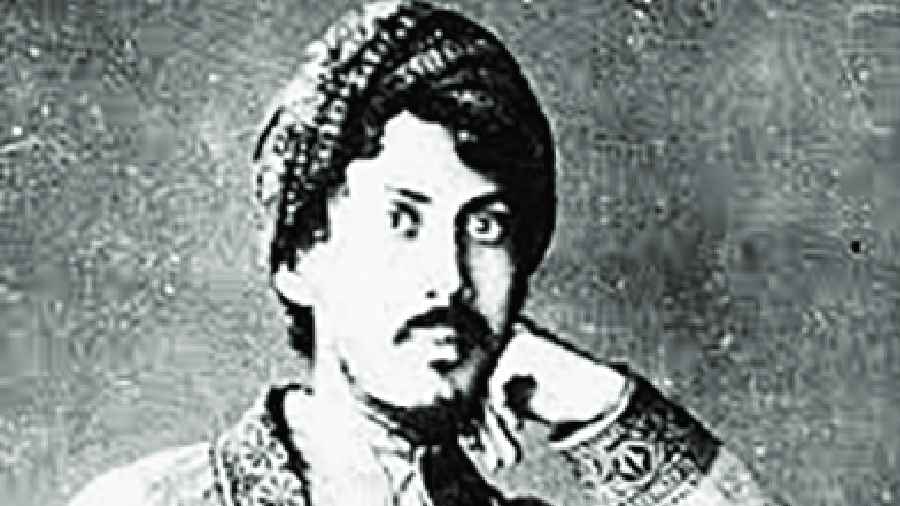SOURCE: TELEGRAPHINDIA
Two books provide glimpses into the life of the musician, musicologist, composer, writer, editor, linguist, translator and playwright
The brilliance of Jyotirindranath Tagore was a little eclipsed by the glory of his more famous younger brother Rabindranath. But Jyotirindranath (1849-1925) still surprises, as two books published around his 173rd birth anniversary on Friday (May 6) prove. They provide glimpses into a life that has perhaps not yet received the attention it deserves.
Both books are new editions of earlier publications. One is a play and the other a biography of Jyotirindranath. Both are edited by Bengali theatre scholar and singer Devajit Bandyopadhyay.
Jyotirindranath, a stunningly versatile writer and artist, and a visionary, left behind many works across the genres that he chose to work with. He was a musician, musicologist, composer, writer, editor, linguist, translator and playwright, who left his unique mark on each of these fields. His business enterprises, though not always successful, were remarkable for their ambition and originality. He left a profound influence on Rabindranath’s mind and art and the two shared a close relationship.
Rajatgiri, the play that has just been republished by Signet Press, is a translation from a Burmese play, presumably re-translated from an English version. Books translated from Burmese into Bengali, even if via English, remain rare and would have been so when Jyotirindranath’s translation was first published in 1904.
In his introduction he says that a culture in which theatre plays a significant role shows a superior level of civilisation, explaining his decision to present a Burmese play, which would not be thought of much here otherwise.
The play, a romance, in which the lovers have to go through many tests before they are united, is representative of Jyotirindranath’s other plays in some ways and interesting in others. He is most remembered today by his play Aleekbabu.
Aleekbabu and many of his other plays were adaptations of European plays, though he had also translated several Sanskrit plays. While translating plays, Jyotirindranath would often adapt them to his own place and time. He brought together elements from more than one of Moliere’s plays to write Aleekbabu, says Bandyopadhyay, a play that is still popular, especially on the stage at Durga Puja time.
He similarly creates for the Burmese play a backdrop of Bengali aristocracy. The main character, Damini, is a powerful, benign presence who holds together the world around her.
The other book edited by Bandyopadhyay is a biography of Jyotirindranath by Manmathanath Ghosh, which is now being published by Banglar Mukh. Ghosh’s biography was first published in 1927.
Bandyopadhyay refers to correspondence and reminiscences of the Tagore family members in his prefaces to the play. At the end of one preface, Jyotirindranath’s niece Indira Debi is mentioned as remembering his room at his Ranchi residence, where he breathed his last. “The only decoration in that room was a pencil drawing by Notun Kakima,” she is quoted.
Notun Kakima was Kadambari Debi, Jyotirindranath’s wife who had committed suicide in 1884.

